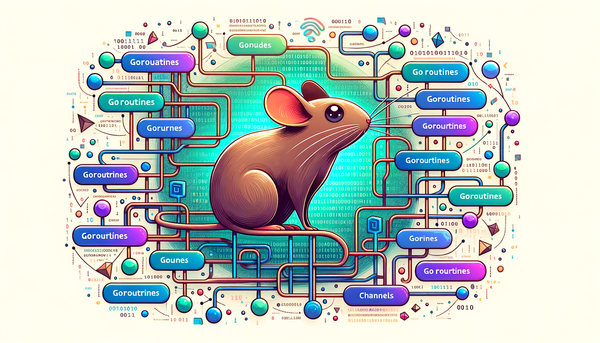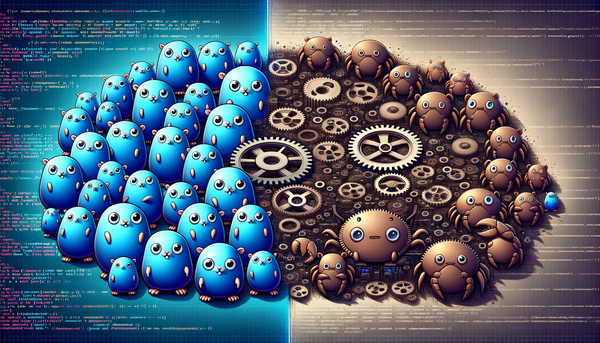ChaCha20 vs. Blowfish: A Speed Showdown for Encryption
ChaCha20 vs. Blowfish: Which encryption is faster? This article compares these two popular methods, testing their speed and efficiency. Learn about stream vs. block ciphers, and discover which one best suits your needs for secure online communication.

Want to keep your data safe online? Encryption is the way to go! But with so many different encryption methods out there, it can be tricky to choose the right one. Today, we're diving into two popular contenders: ChaCha20 and Blowfish. We'll see how fast they are, how much power they need, and which one comes out on top.
What is Encryption?
Imagine you have a secret message that you want to send to a friend. To keep it safe from prying eyes, you can use encryption. This is like putting your message in a special box and locking it with a key. The only person who can open the box and read the message is your friend, who has the key.
Encryption algorithms are like those special boxes. They use math to scramble your data, making it look like gibberish. Only someone with the right key (called a decryption key) can unscramble the data and read the message.
Meet the Contenders: ChaCha20 and Blowfish
ChaCha20: The Speedy Stream Cipher
ChaCha20 is like a fast-flowing river. It's a stream cipher, meaning it encrypts data bit by bit, like a continuous stream. It's known for its speed and efficiency, making it perfect for situations where time is of the essence. Imagine using ChaCha20 to encrypt a message on your phone – it's quick and easy!
Blowfish: The Powerful Block Cipher
Blowfish is a block cipher, like a set of drawers. It takes data in chunks (blocks) and encrypts each block separately. It's strong and reliable, but not as fast as ChaCha20. Think of Blowfish as a secure vault – it takes a bit longer to open, but your data is super safe inside.
Speed Test: Who Wins?
Now, let's put these encryption algorithms to the test! We'll see how quickly they can encrypt and decrypt data.
Example 1: Encrypting a Secret Message
ChaCha20 Code Example:
from Cryptodome.Cipher import ChaCha20
from Cryptodome.Random import get_random_bytes
# Create a key and a nonce
key = get_random_bytes(32)
nonce = get_random_bytes(12)
# Create a ChaCha20 cipher object
cipher = ChaCha20.new(key=key, nonce=nonce)
# The message we want to encrypt
plaintext = b"This is a secret message!"
# Encrypt the message
ciphertext = cipher.encrypt(plaintext)
# Print the encrypted message
print(f"Encrypted message: {ciphertext}")
Blowfish Code Example:
from Crypto.Cipher import Blowfish
from Crypto.Random import get_random_bytes
# Generate a key
key = get_random_bytes(16)
# Create a Blowfish cipher object
cipher = Blowfish.new(key, Blowfish.MODE_ECB)
# The message we want to encrypt
plaintext = b"This is another secret message!"
# Add padding to the message
bs = Blowfish.block_size
plaintext_padded = plaintext + (b" " * (bs - len(plaintext) % bs))
# Encrypt the padded message
ciphertext = cipher.encrypt(plaintext_padded)
# Print the encrypted message
print(f"Encrypted message: {ciphertext}")
In this test, ChaCha20 generally comes out ahead. It's faster at encrypting and decrypting data, making it a great choice for applications that need quick performance, like online chats or video calls.
Efficiency: How Much Power Do They Need?
Besides speed, we need to consider how much power each algorithm needs. Imagine you have a tiny phone with a small battery – you want an encryption algorithm that doesn't drain it quickly.
ChaCha20: Lean and Mean
ChaCha20 is designed to be efficient. It uses less power and takes up less space on your device. This makes it ideal for devices with limited resources, like smartphones or tablets.
Blowfish: A Little More Demanding
Blowfish is a bit more power-hungry than ChaCha20. It needs more processing power and memory to work. While it's still efficient, it may not be the best choice for devices with limited resources.
Security: Keeping Your Secrets Safe
Of course, security is paramount. We want to make sure our data is safe from hackers.
ChaCha20: A Secure Choice
ChaCha20 is considered a very secure encryption algorithm. It's been thoroughly tested and has proven to be resistant to attacks.
Blowfish: Still Strong, but...
Blowfish is also considered secure, but it has a smaller block size (64 bits) compared to modern standards (128 bits). This means it might not be as strong against certain types of attacks as ChaCha20.
Who Wins the Showdown?
So, who comes out on top in this encryption showdown? It depends on your specific needs.
ChaCha20 is a great choice for:
- Applications that need high speed, like real-time communication.
- Devices with limited resources, like smartphones or tablets.
- Strong security.
Blowfish is a good option for:
- Applications where flexibility is important.
- Applications where security is critical, even if speed isn't a major concern.
Ultimately, the best choice depends on your priorities.
Conclusion: A Speedy and Secure Future
Both ChaCha20 and Blowfish are excellent encryption algorithms. ChaCha20 is a clear winner when speed and efficiency are top priorities, while Blowfish provides a reliable and secure option for other scenarios.
As technology evolves, we can expect to see more advancements in encryption. But for now, ChaCha20 and Blowfish are excellent choices for keeping your data safe and secure.




